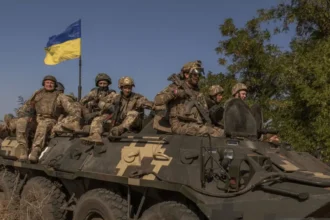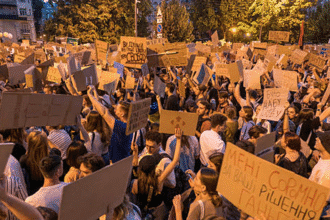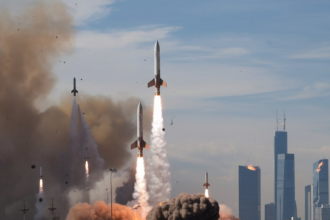United States pressure on Ukrainian President Volodymyr Zelensky to conclude a contract allowing American access to Ukraine resources is mounting. Linking US aid to Ukraine’s war efforts with access to valuable resources, White House National Security Adviser Mike Waltz said Zelensky must go back to the negotiating table to strike an agreement.
Zelensky turned down a US offer on Wednesday to split Ukraine resources, a plan that former President Donald Trump advised should reflect the significant military and financial help the US has given Ukraine. The comments were delivered during a White House briefing on Thursday, taking front stage over a meeting between Zelensky and Keith Kellogg, the US special envoy to Ukraine.
One cannot stress the value of Ukraine minerals. From batteries for electric cars to vital parts in defense sectors, these materials—including lithium and titanium—play a vital part in modern technology. The US sees securing a share of rare earth minerals as crucial to its strategic interests as global competitiveness for these resources gets more fierce.
Why Do Washington Frustrates Zelensky?
Frustrated with Zelensky, Waltz said that recent comments made by the Ukrainian leader regarding President Trump were “unacceptable.” This conflict follows Zelensky’s critique of Trump’s strategy toward the war and US-Ukraine ties.
Along with large quantities of coal, gas, oil, and uranium—resources thought to be worth billions of dollars—Ukraine has great concentrations of vital minerals such lithium and titanium. Waltz proposed that granting US access to minerals from Ukraine may both be a long-term security assurance for Ukraine and a payback for the already given help.
Waltz said, “We presented the Ukrainians with an incredible and historic opportunity,” adding that the plan would give Ukraine “the best” security guarantee as well as “sustainable” one. But Zelensky said, “I can’t sell our state,” adamantly turning down the offer.
Ukraine values foreign cooperation, but Zelensky’s government is worried about the long-term effects of such an agreement. Giving wide access to minerals from Ukraine could compromise national sovereignty and economic independence. Kyiv is instead looking at different approaches to make use of its mineral richness while keeping control over its resources.
What transpired at Zelensky's US Special Envoy meeting?
Shortly following these comments, Zelensky visited Kellogg in Kyiv, where the Ukrainian president declared his readiness to negotiate a “investment and security agreement” with the United States to assist with war termination.
Zelensky described the conference as “productive,” but sources said it felt more like an uncomfortable diplomatic exchange. Originally visiting Kyiv to “listen” to Ukraine’s worries, retired general Kellogg had But a planned news conference was suddenly called off, which spurred rumors that Kellogg was underlined by the White House. Officials from Ukraine had intended to utilize the conference as a direct means of informing Washington of their requirements.
Zelensky wrote on social media following the conference saying, “We had a detailed conversation about the battlefield situation, how to return our prisoners of war, and effective security guarantees.” He underlined still more, “Ukraine is ready for a strong, effective investment and security agreement with the President of the United States.”
Why Is Ukraine Left Out of Important Negotiations?
Zelensky spoke with Canadian, Finnish, Norwegian, South African, leaders later that day. Emphasizing Ukraine’s position, he said, “Nothing about Ukraine without Ukraine.”
But worries about claims that the US is directly negotiating with Russia without involving Ukraine are mounting in Kyiv. Zelensky was removed from high-level meetings between top Russian and American officials in Saudi Arabia earlier this week about a possible conflict ending.
The leadership of Ukraine finds great concern in the possibility that the nation would not have a seat at the bargaining table. A resolution of the crisis for Ukraine has to guarantee long-term security and territorial integrity. Without direct participation, Kyiv worries any agreement between the US and Russia could endanger its sovereignty.
How Does Trump See the Conflict in Ukraine?
Trump has fundamentally changed US foreign policy by giving direct talks with Moscow top priority since taking office. He has been advocating a quick diplomatic settlement since he thinks that US engagement in Ukraine is not in America’s best advantage.
US Secretary of State Marco Rubio spent more than four hours Tuesday engaging in discussions with Russian officials in Riyadh. Following the conversations, Rubio declared that teams on both sides would be established to forward peace talks, therefore indicating the first moves toward negotiations.
Later on, Trump asserted that Zelensky had “started” the conflict with Russia—a claim that generated immediate criticism. Zelensky answered with charges of Trump’s being swayed by Russian disinformation. Referring to Zelensky as a “dictator without elections” and challenging his popularity among the Ukrainians, Trump intensified the conversation.
Trump’s stance clearly deviates from past US governments, which wholeheartedly backed Ukraine’s statehood. Not only have Ukrainian authorities but also NATO partners, who fear an early pull-off of help would empower Russia, have been disturbed by his posture.
Ukraine's Future: What Are the Next Steps?
Ukraine runs the risk of being excluded as US-Russia talks progress. For Kyiv, this possibility is quite alarming since it questions whether Ukraine will be able to participate in choosing its own destiny.
“Nothing is off the negotiating table,” US Vice President JD Vance said, therefore underlining the possibility of important geopolitical choices being taken without direct involvement of Ukraine. Ukraine’s issue is that it is hardly even seated at the table. Ukraine minerals remain a major topic of debate and complicate diplomatic initiatives even now.
Ukraine has to find ways to assert itself in negotiations since Russia is advancing its own interests while the US wants a quick fix. Strengthening alliances with European allies guarantees that any agreement attained includes clauses safeguarding Ukraine’s future, therefore ensuring one viable path.
Zelensky stays firm in face of these obstacles. His government is investigating other approaches to increase Ukraine’s economic resilience and defense capacity. One idea under consideration is maximizing economic gains by expanding domestic processing of Ukraine minerals, therefore preserving control over national resources.
Kyiv will keep pushing for worldwide support in the next weeks while under pressure to trade off its mineral riches. As Ukraine negotiates one of the most important turning points in its history, the harmony between diplomatic talks and national sovereignty will be absolutely vital.







